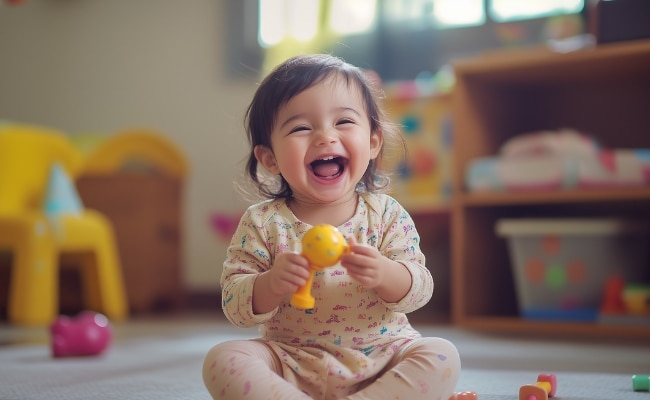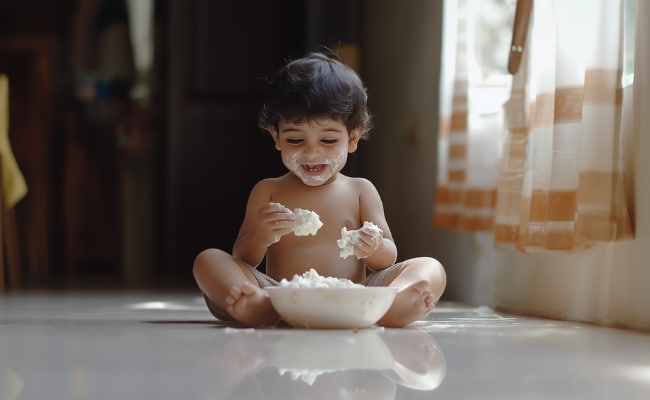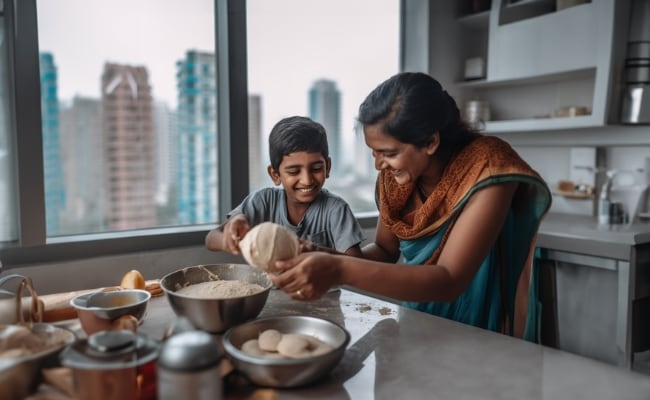- Home/
- Blog: The Learning Brain: Nurturing Your Childs Development With Patience And Engagement
Blog: The Learning Brain: Nurturing Your Childs Development With Patience And Engagement

New Delhi: These are exciting times in child psychology. New techniques in brain imaging and genetics have given us important new insights into how children develop, think and learn. In my short book “Child Psychology: A Very Short Introduction” (Oxford University Press), I discuss these new insights. I show that the most important gifts that we can give to our children are time, patience and love. Child psychology studies show again and again that warmth and responsive contingency are key factors in supporting a child's development. Experiencing warm and loving relationships is very important for the development of a positive self-concept, which means regarding yourself as someone who is worthy of support and respect. This is a key factor in later mental health. “Responsive contingency” simply means responding to the child's chosen focus of interest and ideally, responding in the moment. Praising good behaviours rather than punishing poor behaviours is also important.

Children are not passive learners. Even as infants, they choose what to learn about, for example by what they choose to look at. Their favourite is anything that moves and seems to have a purpose, like animals or other people! Babies also deliberately try to engage the attention of others. For example, as soon as they learn to walk, toddlers will bring you objects or toys. They want you to tell them about these interesting things. If you respond in the moment and talk to them, that will enhance learning. Children's brains are learning machines, and machines need input. A key input is language. Both the quality and the quantity of language matter. In fact, the recent brain research shows that speaking to infants in BabyTalk provides the best developmental outcomes. So talk to your baby as much as you can, and talk to your toddler. The more natural conversational speech they hear, the better for their development.
In some studies, 60% of the speech heard by young children was “empty language”, with adults saying things like “Stop doing that” or “Leave that alone”. These children had worse learning outcomes. The same was true of children who experienced harsh verbal or physical discipline for naughty behaviour. These children were more likely later to be disruptive at school. It is better for children's development to parent positively, rewarding and praising good behaviours and consistently meeting bad behaviours with reasonable consequences, such as brief banishment to the naughty step. It is good to set clear expectations and boundaries, as this promotes a feeling of security and belonging for children. During a tantrum, distraction can work well – don't escalate by shouting back, change the conversation!

Routines and repetition are also important. Children's brains need to learn how the world works, and routines like eating a meal or having a bath have a natural sequence. Children love repetition, because the more times you repeat something, the easier it is to learn about it. Children's bodies also need a lot of physical activity. One study showed that newly-walking infants take over 2000 steps per hour, covering over 3 miles a day. Crawling, walking, jumping, exploring - all these physical activities also help to develop the brain, so-called “embodied knowledge”. If you think about the brain as a learning machine, then the early learning environments provided by the home, the wider community and the nursery or school become very important. Making these environments as richly interesting, safe to take risks in and warmly supportive as possible nourishes our children's brains. As long as working parents can manage a bit of special time with their child each day, children will thrive. Behind every happy child is an ecosystem of family and friends who provide interaction and communication, and help the child to build relationships.

About The Author: Professor Usha Goswami CBE FRS FBA is a child psychologist, and the founding director of the Centre for Neuroscience in Education at the University of Cambridge U.K. Her research has made important advances in understanding the brain basis of language acquisition and dyslexia across languages, for which she was awarded the 2019 Yidan Prize for Education Research.
About Us
Bachpan Manao - is a social mission about making the most of the early childhood opportunity for learning and growth. It is about recognizing that. Learning in early childhood (0-8) happens best through joy and play.
Making the most of this opportunity means:
1. CELEBRATING CHILDHOOD
Allowing children (and yourself) to celebrate and enjoy their childhood fully
2. SEEDING SUCCESS
Giving children the best foundation for all-round development
3. DRIVING EQUITY
Enabling skill-building, which will drive equity over time
